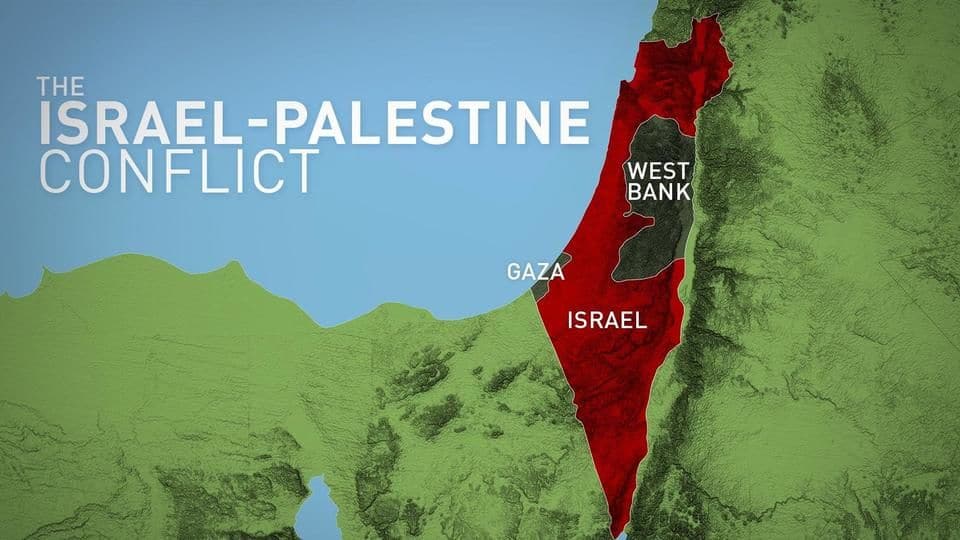
Everything you need to know about Israel-Palestine conflict
What's the story
US President Donald Trump's decision to recognize Jerusalem as the capital of Israel has left the Israelis celebrating and Palestinians seething in anger.
The move was condemned by Arab-Islamic countries and criticized by the Western world.
It risks disrupting a longstanding status-quo between Israelis and Palestinians and complicates the search for a two-state solution.
But, what is the Israel-Palestine conflict about? We explain.
Introduction
Brief introduction about Israel-Palestine conflict
Israel is the world's sole Jewish state. However, Israeli territory comprises of land also claimed by the region's Palestinian Arab population.
The Arabs want to establish their own state, Palestine, on all or parts of the Israeli territory. Both communities have historic claims over the land.
The Israel-Palestine conflict is about who gets what territory and how it's controlled.
Details
How Jews migrated to the Middle East
Growing anti-Semitism and persecution in Europe convinced the Jewish community about the need to establish their own country.
From 1896 to 1948, hundreds of thousands of Jews, many of whom were fleeing the Holocaust in World War-II, settled in British-controlled Palestine.
Palestine's Arabs opposed the mass migration to their homeland.
In November 1947, the UN partitioned Palestine into Jewish and Arab areas.
Formation
How Israel was formed?
Following the partition, the Arab-majority West Bank including East Jerusalem went to Jordan while Egypt got the Gaza Strip.
On May 14, 1948, the state of Israel was formally created. This provoked the eight-month Arab-Israeli War.
Israeli forces razed nearly 400 Palestinian villages forcing 760,000 Palestinians to flee to the West Bank, Gaza, and neighboring Arab nations.
The Palestinians were left stateless.
Fighting
Conflict fought over Israel-Palestine issue
In June 1967, during the Six-Day War, Israel forcibly occupied east Jerusalem, the West Bank, Gaza Strip and Syria's Golan Heights after defeating Egypt, Jordan, and Syria.
In October 1973, Israel repelled an attack by Arab states on the Jewish holy day of Yom Kippur.
From 1987-1993, a Palestinian uprising, called the first intifada, witnessed increased violence.
From 2000-2005, the second intifada took place.
Current scenario
Who controls what?
Currently, the West Bank is under the Palestinian Authority's nominal control but is under Israeli occupation.
Gaza is under the control of the Islamist fundamentalist party Hamas but is subject to an Israeli blockade.
Meanwhile, Israel is controversially allowing Jewish settlements to be constructed in the West Bank, land meant for the Palestinians.
Israel also continues to restrict Palestinian movement and activity.
Information
Why the status of Jerusalem is contentious?
Jerusalem lies along the border between Israel and the West Bank. It is home to religious sites considered holy by Islam, Christianity, and Judaism. Israel considers Jerusalem its capital while Palestinians envision East Jerusalem as the capital of their own future independent state.
Solution?
"Two-state solution" remains out of reach
For decades, there have been several attempts at reaching an everlasting peace solution.
The most viable option proposed is the "two-state solution" which would essentially lead to the creation of independent Israeli and Palestinian states, allowing both sides to run their countries differently.
However, neither side can agree on the terms of such a deal.
Meanwhile, the 70-year-old Israel-Palestine conflict continues.